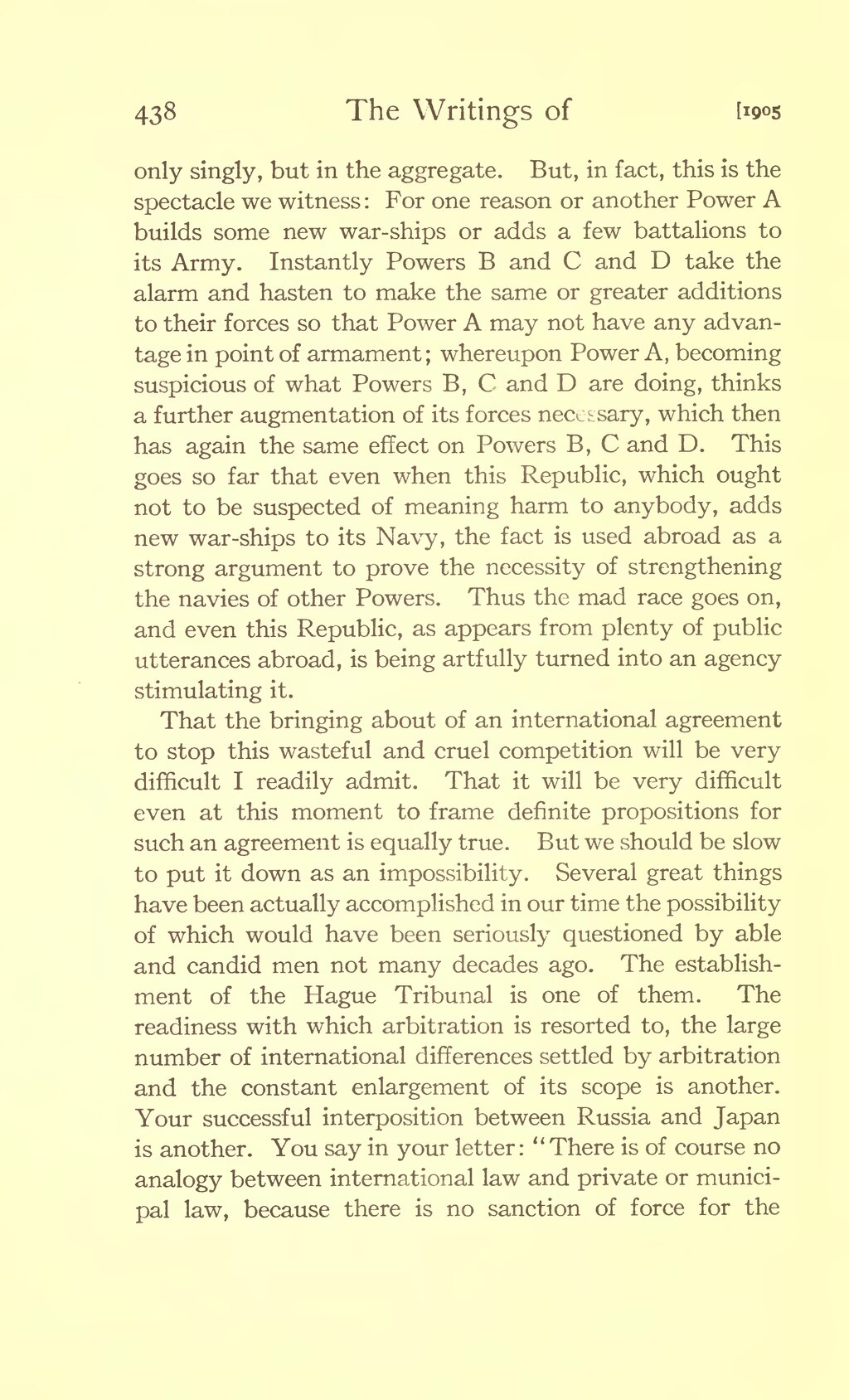only singly, but in the aggregate. But, in fact, this is the spectacle we witness: For one reason or another Power A builds some new war-ships or adds a few battalions to its Army. Instantly Powers B and C and D take the alarm and hasten to make the same or greater additions to their forces so that Power A may not have any advantage in point of armament; whereupon Power A, becoming suspicious of what Powers B, C and D are doing, thinks a further augmentation of its forces necessary, which then has again the same effect on Powers B, C and D. This goes so far that even when this Republic, which ought not to be suspected of meaning harm to anybody, adds new war-ships to its Navy, the fact is used abroad as a strong argument to prove the necessity of strengthening the navies of other Powers. Thus the mad race goes on, and even this Republic, as appears from plenty of public utterances abroad, is being artfully turned into an agency stimulating it.
That the bringing about of an international agreement to stop this wasteful and cruel competition will be very difficult I readily admit. That it will be very difficult even at this moment to frame definite propositions for such an agreement is equally true. But we should be slow to put it down as an impossibility. Several great things have been actually accomplished in our time the possibility of which would have been seriously questioned by able and candid men not many decades ago. The establishment of the Hague Tribunal is one of them. The readiness with which arbitration is resorted to, the large number of international differences settled by arbitration and the constant enlargement of its scope is another. Your successful interposition between Russia and Japan is another. You say in your letter: “There is of course no analogy between international law and private or municipal law, because there is no sanction of force for the
